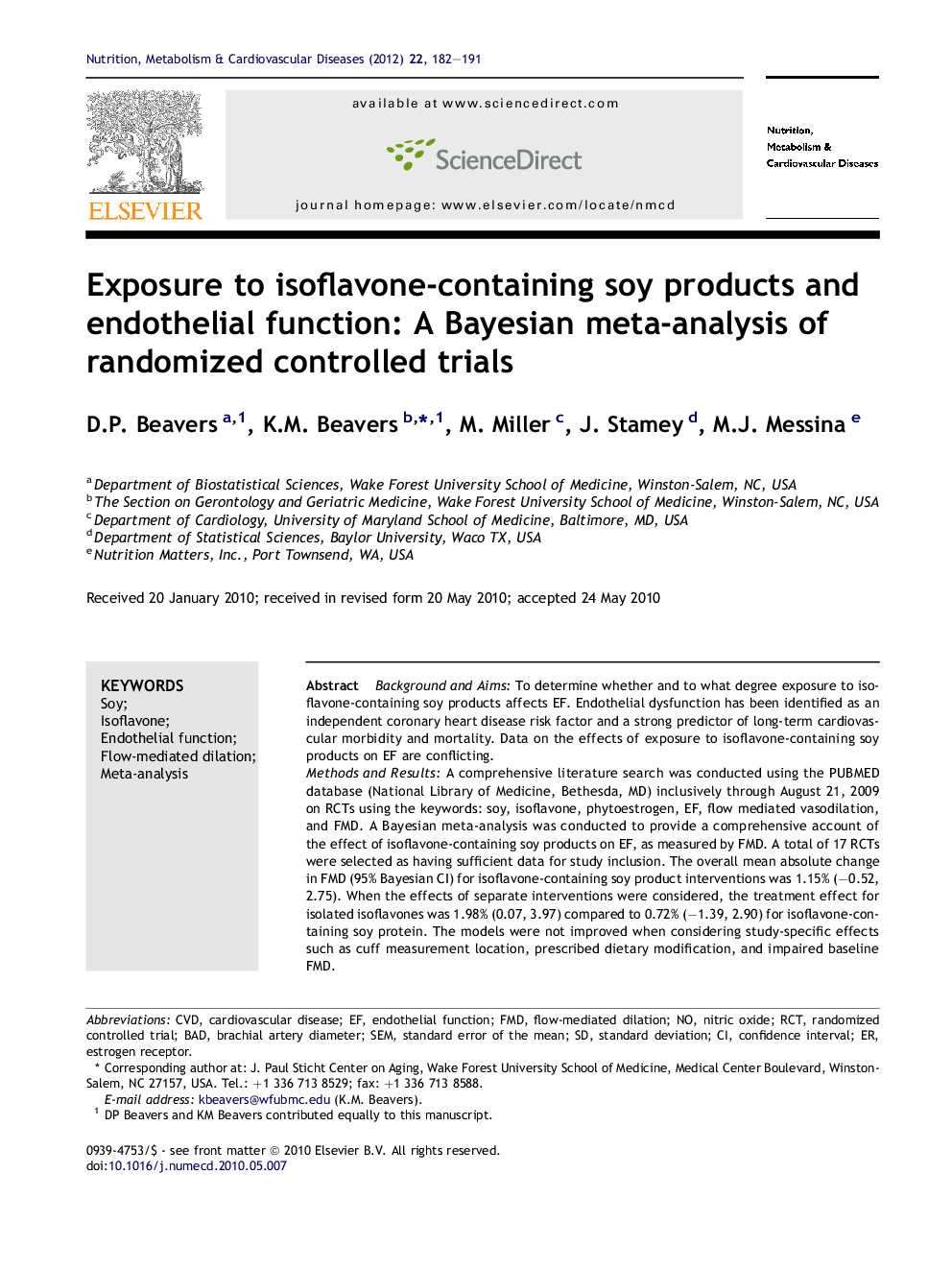| Article ID | Journal | Published Year | Pages | File Type |
|---|---|---|---|---|
| 3002647 | Nutrition, Metabolism and Cardiovascular Diseases | 2012 | 10 Pages |
Background and AimsTo determine whether and to what degree exposure to isoflavone-containing soy products affects EF. Endothelial dysfunction has been identified as an independent coronary heart disease risk factor and a strong predictor of long-term cardiovascular morbidity and mortality. Data on the effects of exposure to isoflavone-containing soy products on EF are conflicting.Methods and ResultsA comprehensive literature search was conducted using the PUBMED database (National Library of Medicine, Bethesda, MD) inclusively through August 21, 2009 on RCTs using the keywords: soy, isoflavone, phytoestrogen, EF, flow mediated vasodilation, and FMD. A Bayesian meta-analysis was conducted to provide a comprehensive account of the effect of isoflavone-containing soy products on EF, as measured by FMD. A total of 17 RCTs were selected as having sufficient data for study inclusion. The overall mean absolute change in FMD (95% Bayesian CI) for isoflavone-containing soy product interventions was 1.15% (−0.52, 2.75). When the effects of separate interventions were considered, the treatment effect for isolated isoflavones was 1.98% (0.07, 3.97) compared to 0.72% (−1.39, 2.90) for isoflavone-containing soy protein. The models were not improved when considering study-specific effects such as cuff measurement location, prescribed dietary modification, and impaired baseline FMD.ConclusionsCumulative evidence from the RCTs included in this meta-analysis indicates that exposure to soy isoflavones can modestly, but significantly, improve EF as measured by FMD. Therefore, exposure to isoflavone supplements may beneficially influence vascular health.
